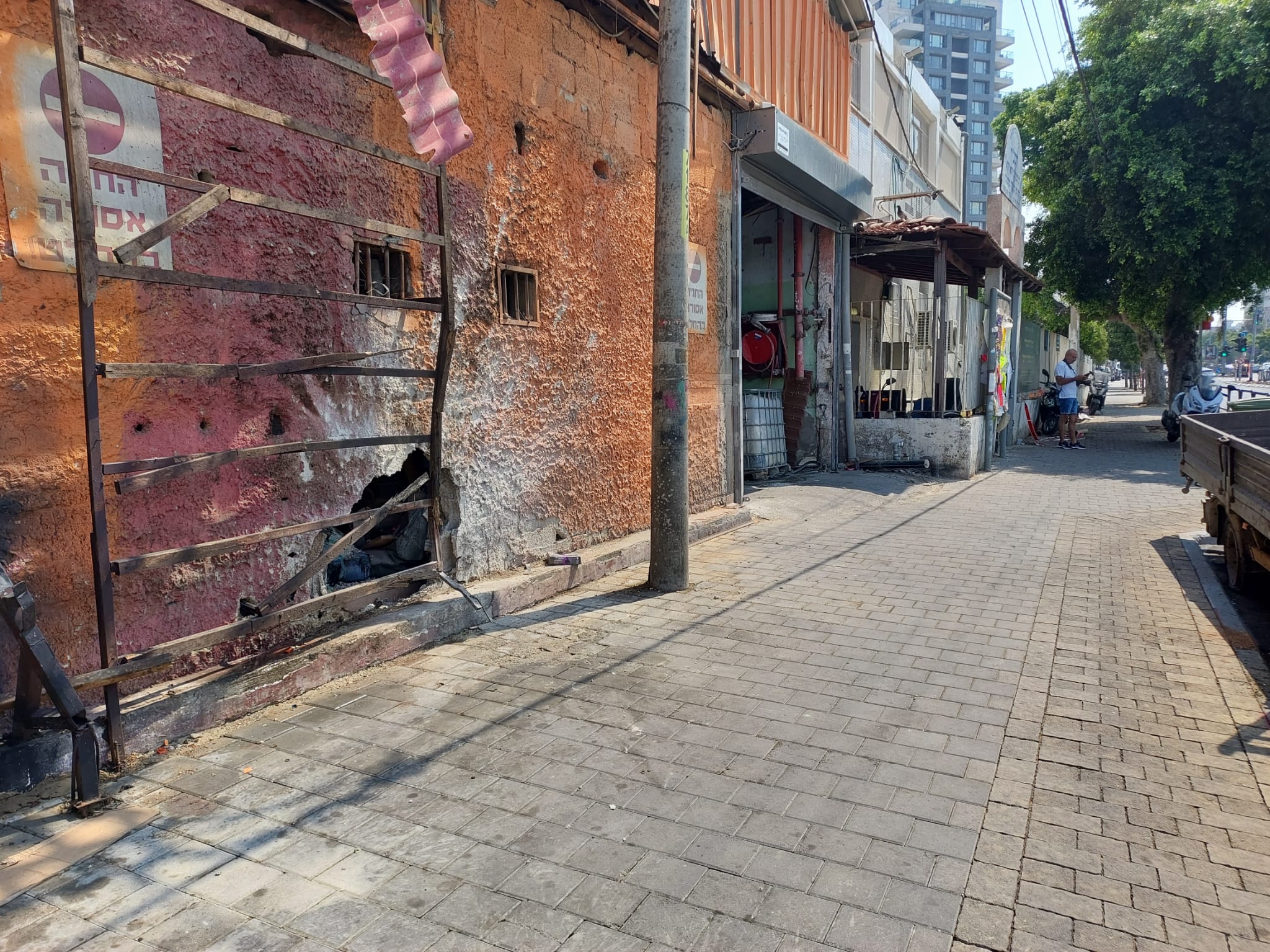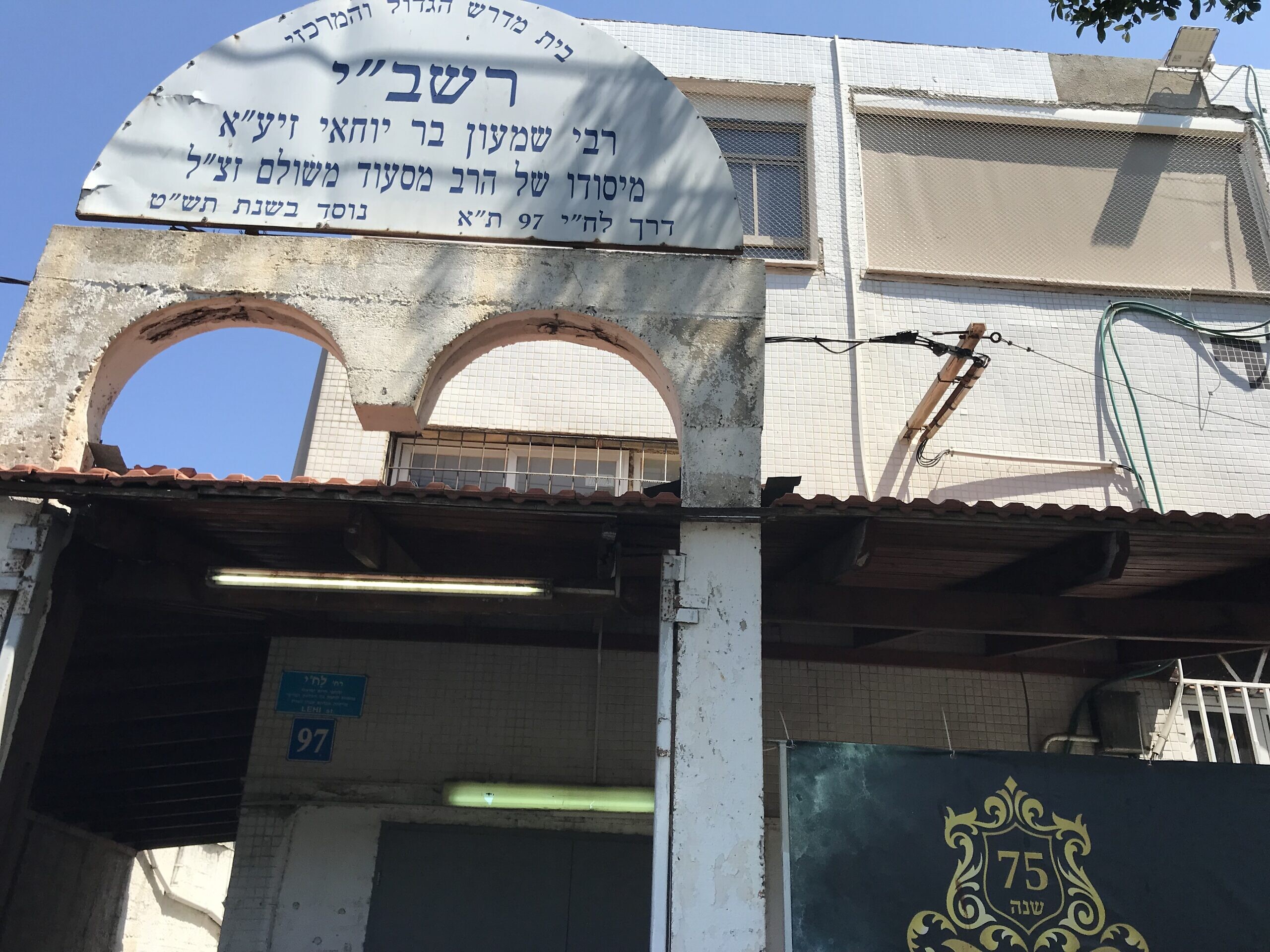Tel Aviv police chief told Kan News Radio of a failed city suicide bombing this week that “we are in a kind of miracle that the incident did not end in dozens of deaths.”
Worshippers at a nearby synagogue named for Rabbi Shimon bar Yochai, known by the acronym Rashbi, told JNS that they were in the middle of the silent prayer of the evening service on that Sunday night when just after 8 p.m., there was a thunderous blast, the electricity went out, and the synagogue’s windows shattered.
“Our first thought was it was a missile,” Yehuda Meshulam, who directs the synagogue, which also doubles as a study hall on the nondescript Lehi Road in south Tel Aviv, told JNS.
Others mentioned a drone.
Racing outside, worshippers saw a truck on fire, as the smell of smoke and ash choked the air. They lugged buckets of water to douse the flames until rescue workers arrived.
Seeing a man’s remains under the truck, some thought incorrectly that the attack was organized crime. “We actually calmed down because we thought it was a criminal attack and not terrorists that might be walking around,” Meshulam said.
They never expected it to be a suicide bomber—a hallmark of Palestinian terrorism two decades ago that killed hundreds of Israelis in scores of attacks nationwide.
By Monday morning, after Israeli police and security officials examined video footage from an adjacent hardware shop, it emerged that the blast just outside the synagogue was a bungled terror attack.
The terrorist, who has been identified as a resident of the Palestinian city of Nablus in his 50s, walked about half a mile before sitting down on a bench outside the synagogue where the 17-pound explosive in his backpack went off. He was killed instantly. A 43-year-old Israeli commuter, who was on an electric scooter, was hurt moderately.
Both Hamas and Islamic Jihad claimed responsibility for the attack, but the attacker had no known affiliation with either terror group.
As the investigation continues, Israeli security officials said that Iran or Hezbollah may have directed the attacker.
“There is an Iranian effort to activate people here,” Yigal Carmon, president of the Arab press monitor Middle East Media Research Institute, told JNS. “This was apparently done with Iranian direction.”

The site of a suicide bombing attack in Tel Aviv near a synagogue named for Rabbi Shimon bar Yochai on Aug. 18, 2024. Credit: Courtesy.
‘Internalizing the size of the miracle’
Congregants at the synagogue read a chapter of Psalms, thanking God for the near-miss.
When JNS visited the site on Wednesday morning, a charred wall with a gaping hole from the shrapnel was still visible between a hardware store and the synagogue. The Tel Aviv police chief stated that there would have been many casualties if the blast had occurred inside a building.
“People here are still internalizing the size of the miracle,” said David Tarbel, 19, a yeshivah student who was praying at the synagogue during the attack.
“What happened is nothing else than an overt miracle from the heavens,” he told JNS.

A synagogue named for Rabbi Shimon bar Yochai in Tel Aviv, near the site of a suicide bombing on Aug. 18, 2024. Credit: Courtesy.
Outside the synagogue, a banner states, “Non-stop Judaism in the non-stop city: Marking 75 years since the Rashbi institutions.”
Congregants told JNS that Bnei Brak’s chief rabbi visited the synagogue just last week and told them that their study was helping preserve Tel Aviv.
On Sunday, the former Sephardi chief rabbi plans to visit the synagogue for a celebration of thanks.
“We feel that the holiness of this place saved us,” Meshulam said.
Source: JNS


